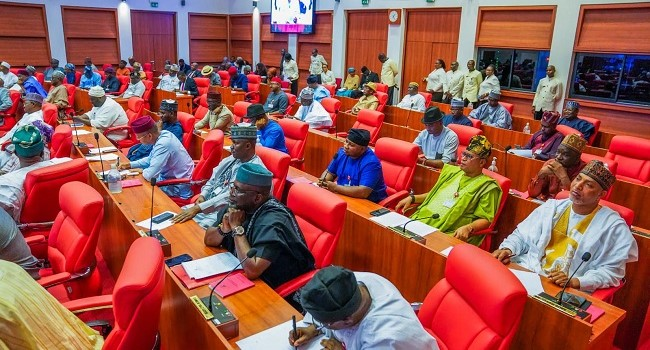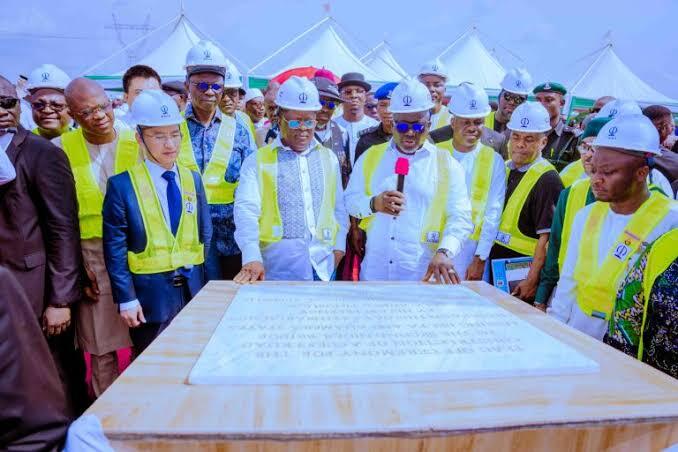The upper chamber said that the investigative hearing was to ensure fair and equitable representation across all zones and ethnic groups in appointments, promotions and recruitment.
The resolution followed the adoption of a motion sponsored by Sen. Osita Ngwu (PDP-Enugu) at plenary on Tuesday in Abuja.
Ngwu, in the motion entitled: “Urgent need to address systemic abuse and ineffective implementation of federal character principle in Nigeria’s public sector”, said systemic abuse had become a major challenge to achieving balance and equity within Nigeria’s public service.
He said that the challenge was due to limited recruitment opportunities, skewed promotions based solely on years of service and insufficient avenues for worker-mobility outside the public sector.
According to him, the federal character principle mandates fair representation in federal appointments to reflect linguistic, religious and geographic diversity of the country.
Ngwu quoted section 14(3) and (4) of the constitution as stipulating that “no predominance of persons from a few states or from a few ethnic or sectional groups should exist within the federal government or its agencies.
He said that despite the focus on geographical quotas, imbalances still persisted with some institutions, often relocating problems rather than resolving them, while certain zones remained under-represented.
The senator expressed concern that the process of addressing public sector disparities had been undermined by institutional inertia and lack of accountability.
This, he said, was particularly prevalent in the area of recruitments at senior levels and influenced more by internal preferences than by merit and fairness.
“The quota system has, in many cases, created confusion between merit-based recruitment and equitable state representation, to the detriment of discipline, morale and institutional efficiency,” he said.
The lawmaker said that the constitutional criteria for equitable distribution of employment required that each state contributes its proportionate quota of 2.75 per cent to the national workforce.
“The Federal Capital Territory (FCT) account for 1.00 per cent of the workforce, while catchment areas are to address localised recruitment for junior staff up to 75 per cent of positions,” he said.
He also said that Order 96(27)(b) of the senate rule 2023 and sections 62, 88, 89, 143-(4) of the constitution gave its committee power of legislative oversight on matters relating to implementation and monitoring of policy on federal character.
Ngwu alleged that various federal institutions had consistently failed to adhere to federal character mandates, often by-passing regulations in their recruitment exercises, adding that evidences abound.
He listed some of the agencies to include: Nigerian National Petroleum Company Limited (NNPCL) and its subsidiaries like Nigerian Upstream Petroleum Regulatory Commission (NUPRC).
Others, he said, were NAFDAC, Nigerian Ports Authority (NPA), National Pension Commission (PenCom), Nigerian Deposit Insurance Corporation (NDIC) and Federal University of Technology, Akure (FUTA).
He also listed Small and Medium Enterprise Development Agency of Nigeria (SMEDAN),Energy Commission of Nigeria (ECN), Nigerian Nuclear Regulatory Authority (NNRA) and National Library of Nigeria (NLN) among those flouting the federal character principle.
He said that the contempt emanating from the foregoing, if unchecked, would continually erode efficacy of section 14(d)(e) of the Legislative Houses Powers and Privileges Act, 2017, Part 1(1)-(2) of the Subsidiary Legislation 23 of 1997 and section 11(2) of the Freedom of Information Act, 2011.
Ngwu expressed concern that the Federal Character Commission (FCC), although constitutionally empowered, remained hindered by chronic underfunding, political interference and limited enforcement capabilities.
The senate, following intense debates from Sens. Abba Moro,(PDP-Benue), Adamu Aliero (PDP-Kebbi), Seriake Dickson (PDP-Bayelsa), Olalere Oyewumi (PDP-Osun), Victor Umeh (LP-Anambra), Anthony Ani (APC- Ebonyi),Adams Oshiomhole (APC-Edo), mandated the committee to turn in its report in three months. (NAN)











